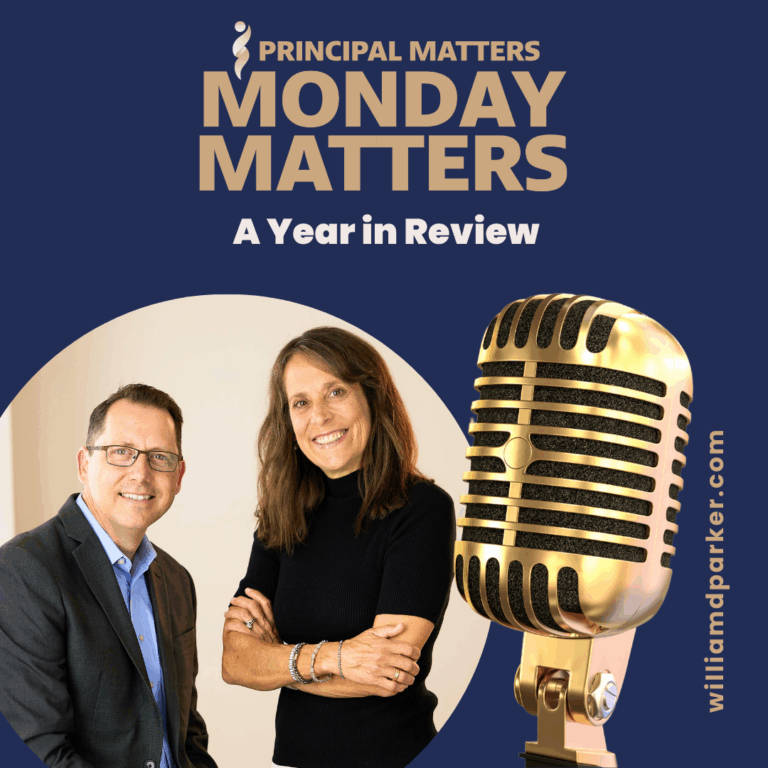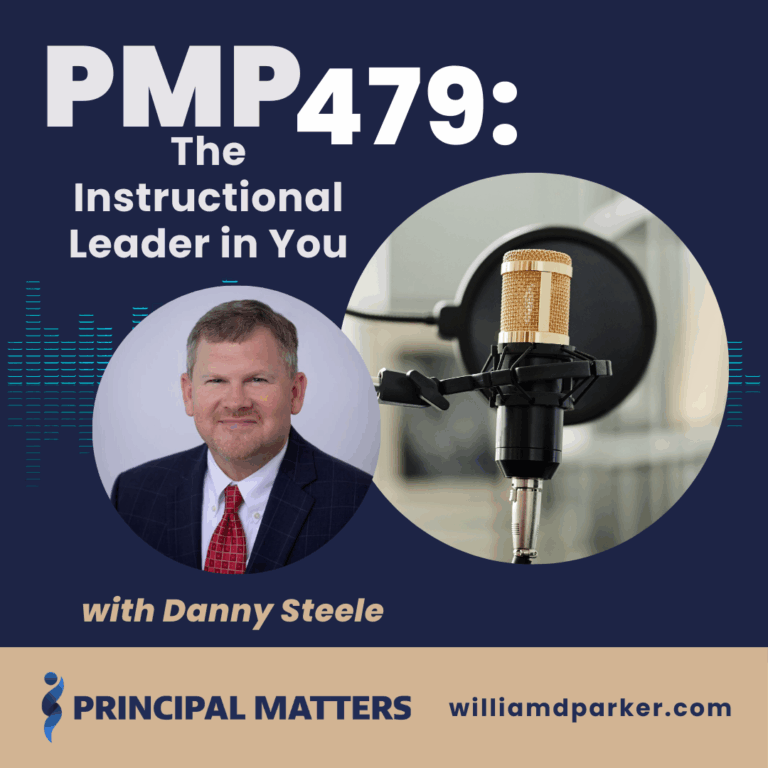Podcast: Play in new window | Download
A few years ago, I was talking to a senior student, Jesse, who was publishing his first book.
He shared with me that he had a great opportunity to speak at a gathering of authors at a book conference. Later, he was invited to a number of middle schools to share with younger students his passion for writing. I asked him if I could attend one of his presentations, and it was amazing to watch him communicating ideas and inspiration to groups of 6th, 7th, and 8th graders.
Over the next few months, Jesse would stop by my office, and we would talk about his dreams and plans. Because he was so teachable, I pointed him toward resources to help him start blogging, creating an email subscription list, and leveraging his social media options. We explored ways he might maximize opportunities before starting college.
As a result, Jesse began building a platform for his writing, ideas, and creative projects before he even graduated high school. He stayed in contact with readers and students he had met through his content and events. He is in college now, has published his second book, and is hosting his own podcast.
Jesse has exceptional gifts, drive, and opportunities for someone his age. And as I watch other students like him pursuing their futures, I realize that this generation faces options for careers that my generation never knew. Today’s students no longer have to wait for permission or continuing education to begin connecting, designing, creating or sharing ideas.
When I think about my own children entering the adult world and the students in my school, I realize they have amazing options:
- No longer is their potential work or industry path tied simply to location or geography.
- No longer is their potential to learn, practice, or experiment with ideas limited to a school or institution.
- No longer is their network of future employers, mentors, or clients limited to face-to-face interactions.
I think it safe to say that our students have more options for opportunities than any other generation in history. But with all the options comes the dilemma of understanding these options, harnessing them, and utilizing them without simply feeling overwhelmed.
Tim Elmore explores the unique opportunities and challenges that our younger generations face in his book Generation iY.
The iY Generation typically encompasses those born somewhere after 1990. They are the teens and college-age students who have never known a world without the Internet. Elmore also touches on the generation of students now stepping into the limelight: the iGen students who typically represent those born after the tragedies of September 11, 2001. This emerging generation has never known a world without global terrorism, economic uncertainty, or political unrest. Both the iY Generation and iGen students, however, have amazing opportunities and potential for making a difference in the world.
On a side note, it is safe to say that all generations have had potential to change their worlds. Think about the lessons we’ve seen in history:
- The rise and fall of ancient civilizations;
- The cultural and religious upheavals from the birth of printing press during the Reformation;
- The social and economic impacts of the Industrial Revolution;
- Or the revolutionary influence of the Age of Reason and the political freedoms of Democratic Republics.
Yes, young and visionary leaders have always found ways to influence their world. But today students have unique advantages never known before–ways to explore, communicate, and learn that are accessible to anyone with a connected device. Whether they are auditing online courses from Ivy League Colleges, creating their own YouTube channels, or self-publishing their first novels, their access to technology has opened incredible new as well as challenging possibilities.
I highly recommend Tim Elmore’s Generation iY if you’re interested in an exhaustive study on the subject. But for this post, I want to touch on three ideas that his book sparked for me–ideas that are relevant for those of us working with young people everyday:
1. Principles don’t change, but methods do.
Recently Tim Elmore interviewed John Maxwell for his Growing Leaders Podcast. Maxwell is a best-selling and globally renowned leadership author who is now approaching 70. During that conversation, he made a comment that if we are to remain both “timely” and “timeless” as older leaders in this generation, we must be committed to principles that last the test of time while presenting them in a timely way.
Access and opportunity are wonderful privileges for this generation. But our students also still need a commitment to values, beliefs, and behaviors that will benefit themselves and others. For educators, this means we must continue to find ways that lessons are both timely and relevant to the world they live in today.
In a similar note, Dr. Bill Daggett touches on the same theme in his lessons from the International Center for Leadership in Education. He calls these tenets the 3-R’s of effective teaching: rigor, relevance, and relationship. While these essentials don’t change with time, what is considered relevant is always changing. By focusing on relevance, we aren’t forgetting principles. But we are remembering that even the most timeless principles, facts, or lessons must remain tied to engaging communication methods and real-world application.
In other words, when I’m working with a student like Jesse, I must remember that although he is academically strong and socially mature, he also needs relevant tools and resources for connecting his gifts and talents to today’s culture and marketing possibilities. He needs mentoring in both the principles of continuing education and the methods for making the most of today’s technologies.
2. Teach-ability is essential to understanding and leveraging options.
As a 48-year old, I have a dilemma of trying to keep up with the latest options in technology. As long as I remain teachable, however, I have an amazing advantage. If you’re like me, you may feel like you always have more to learn. And you do. The good news is that we can lean on others who can teach us new options or methods as long as we remain teachable.
For educators of iY Generation or iGen students, we must remain flexible in the ways we deliver content, information, and ideas. This doesn’t mean we have the capacity to learn every new technology available, but it does mean we recognize that our students are raised in a culture that depends on rich images, various mediums, and quickly changing attention spans.
Tim Elmore also calls today’s students the “EPIC generation”, and he recommends that teaching this generation should include lessons that are “EPIC”: Experiential, Participatory, Image-rich, and Connected (Elmore 180-184). This means that our pedagogy must include practices that also include technologies, tools or platforms that can support student ambitions.
Ask yourself these questions: What are the ways I am finding or consuming information or ideas? Are you exploring the tools, techniques or resources that make that possible?
Then ask: How can I help students utilize the tools and resources where they connect to further their learning or future career interests? In other words, as we remain open to learning how social media works, how ideas are being shared today, how industry is designing or developing new products, we can encourage this same curiosity and exploration for our students.
This doesn’t mean you will be an expert in all these areas, but exploring the big-picture ideas of how our world works helps us coach students as they are considering their own future options.
Just today, we hosted a College & Career Fair for our students. Vendors from colleges and area businesses lined the breezeway of our activity center. As I talked to the owner of an architectural engineering company, I discovered he was a graduate of my high school. When I asked him how he markets his business, he said three ways: word of mouth, visibility, and social media. As a young business owner with 13 professionals on his staff, he has learned that Facebook has become just as powerful a communication tool as showing up for a Career Fair. He is growing a business by being both good at his craft and teachable in his methods.
3. We will always need people to find solutions.
Just as some principles remain timeless, future jobs will still be built around people helping fill the needs of other people. Whether this is healthcare, industry, technology, social services, or education–the world has always and will always involve the need for problem solving and critical thinking. And in our economy of supply-and-demand, most of us are willing to provide rewards (money, compensation, time or recognition) for the value of a good solution (a product, answer, cure, or entertainment).
Yes, the ability to find answers to questions is sometimes as simple as asking Google or Siri. But the ease of information gathering will never replace the essential need for asking deeper questions, researching for unknown answers, and testing new ideas.
Our responsibility with this generation, however, also means teaching them discernment. How do they recognize a good idea from a bad one when the the online world is full of unreliable sources? How do they discriminate between a valuable idea and a simple sales-pitch?
Teaching students these valuable skills means we keep asking ourselves the same questions. And no matter how timely our teaching becomes, we must still have real-life discussions that still work best in face-to-face interactions, real-life relationships, and mentoring moments.
Just today I sat in classroom with a teacher of students with special needs. At the end of a lesson on paraphrasing and summary, she switched gears and passed out some cards with scripts. The students stood up to role-play a scene where four of them had just taken a test. In this small skit, one complained that the teacher was too hard. The next one said he didn’t pass because the class is stupid. A third one said it didn’t matter anyway. And a fourth one said, “It’s my own fault I didn’t pass. If I had studied, I would have done better.”
Then the teacher asked them to walk through the scenario again and explain why taking responsibility for your actions is the best way forward. The students actually responded with respect and candor. It was obvious that their teacher had a strong relationship with them. She was willing to teach them academics and character at the same time. She is finding EPIC ways to help them learn how to find solutions.
Let’s Wrap This Up
Students like Jesse Haynes are good reminders that today’s learners are already able to move forward with dreams, connections, and networks long before leaving high school. In fact, I reached out to Jesse this week to ask if I could include his story in this post. He told me yes, and then also told me that he has started another podcast called The Others this semester. In only two episodes, he has had over 35,000 downloads!
As you look at the work you are doing with Generation iY or iGen students today, let me encourage you to remember that none of us will ever have all the answers to the multi-faceted needs of our students. At the same time, you can be a valuable guide and coach by remaining committed to solid principles while staying flexible to new ways of learning, by understanding and leveraging the tools available, and by guiding and coaching students with the options before them.
When we keep these perspectives in mind, our upcoming generations can step into their futures with the support, guidance, and mentoring they will need to take on the world. And hopefully, the difference they will make will pave the way for the generations coming after them.
Now It’s Your Turn
What are some ways you can help encourage EPIC interactions with students? What is one tool or resource you may be willing to learn that can help students as they begin exploring their own futures? Share ways your students and teaching are taking advantage of the possibilities available for this unique generation of students.
Shout out to Growing Leaders
If you’re interested in learning more about reaching our upcoming generation, you may be interested in attending The Growing Leaders National Leadership Forum in Atlanta, Georgia June 22-23 2017. John Maxwell is one of the keynote speakers. I’ll be attending as well and presenting for school leaders at one of the breakout sessions. I’d love to see you there!
Sign-Up For Free Updates and Ebook
When you enter your email address here, you will automatically receive Principal Matter posts and a free Ebook, 8 Hats: Essential Roles for School Leaders. Let’s keep learning together!
Principal Matters–The Book!
School leaders are very busy, so each of the twenty-four chapters is designed as a quick-read and followed with take-action questions for follow-up or reflection. If you want practical ideas on understanding your purpose, managing school teams, dealing with challenges, and leading with courage, action, motivation, and teamwork, go HERE to pick up a copy for you or your team.




